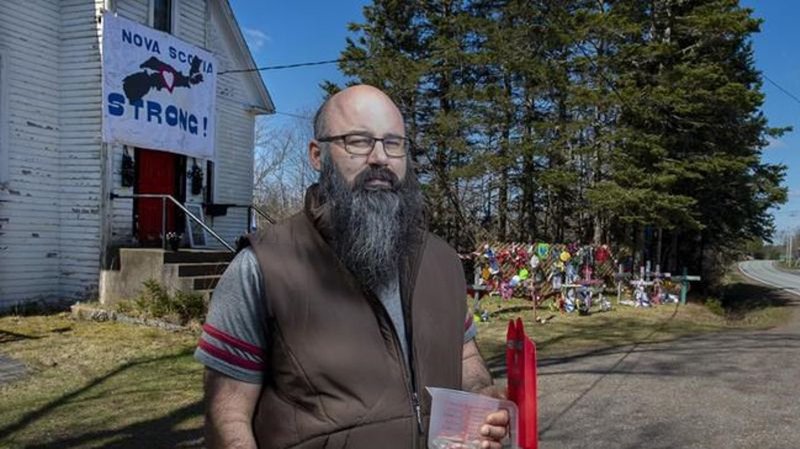
Creating permanent memorial to Nova Scotia mass shooting victims a delicate task
PORTAPIQUE, N.S. — Creating a memorial for those killed in Nova Scotia’s mass shooting is a delicate task at a time when families continue to grieve and communities are reluctant to revisit horror, say volunteers working on the project.
“We’re just getting started really. It’s quite a process,” Cees van den Hoek, a board member of the Nova Scotia Remembers Legacy Society, said in an interview Thursday.
The local antique dealer was standing in front of a former church he owns in Portapique, where the first impromptu arrangements of flowers, paper hearts and laminated photos were placed after the deaths last April 18-19. The tributes were removed in September, with some being passed on to families.
Van den Hoek was taking a moment from helping organize a run that will start nearby, one year to the day after the shootings began — an initial step toward raising money for a permanent site.
